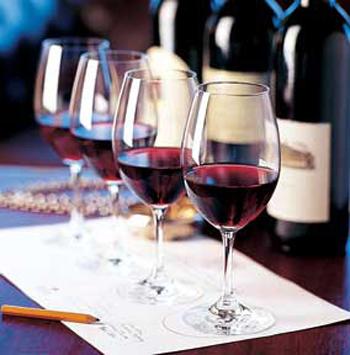If there is one tool most vital in propelling the East Coast wine industry towards a West Coast level of prestige, that instrument is education. This applies for both the consumer and the producer. As the next generation of winemakers gains a more extensive understanding of the science behind the techniques, the Mid-Atlantic States are producing wine of an increasingly high caliber. Simultaneously, the desire of the consumer to learn more about tasting, pairing, and international wine continues to spread, guiding the entire regional industry towards a more sophisticated focus.
In response to this progression there are more opportunities for wine education in the East than ever before. Because of the wide array of classes, programs, and certificates now available, it can be confusing to differentiate between types of training. Whether you are a potential viticulturalist, a sommelier-in-training, or merely hoping to feel a little more confident perusing a restaurant’s wine list, there are finally accessible programs geared to your goals.
In 1880, the University of California Davis launched the very first accredited Viticulture and Enology program in the United States, only to be shut down in 1919 with the establishment of Prohibition. The department was reinstated in 1935, and for years it remained the only prominent resource for a comprehensive education in winemaking or grape growing within the US. Gradually, a few other West Coast institutions also began offering degrees in the field, but it wasn’t until 2008 that Cornell reformed its long-running viticultural research division into its own freestanding department, becoming the first Enology and Viticulture degree in the East. This was an essential step not only for the education of future winemakers, but also in the acquisition of expertise and the establishment of a venue for research specific to local conditions.
The quality of East Coast wine has greatly benefited from this resource, directly apparent in the advancement of vineyard management and winemaking techniques. But only recently have other Universities in the region begun to offer alternative programs. Virginia Tech now offers an Enology and Viticulture concentration within its Food Science and Technology department, and just this year the community college in Harrisburg, Pennsylvania began accepting students to its new undergraduate department. Most programs now offer online extension courses as well.
If you are more interested in the sale, service, or discerning consumption of wine, there are often multiple privately owned wine schools in any metropolitan area. There are a few “academies” right in D.C. that offer a variety of educational opportunities for anyone, from the casual buyer to the aspiring professional. Both the Capitol Wine School and the Washington Wine Academy offer classes connected with the WSET (Wine and Spirits Education Trust), which provides a widely accepted measure of proficiency. Generally, one can earn WSET Certificates at the Intermediate or Advanced Level, which can be helpful if you hope to get a job at a restaurant or wine retail store.
These programs usually charge an entry fee specific to the certificate level you’re aiming for, and then may have classes once a week or so for several weeks. The classes may start out with more general tutorials on global wine regions and basic winemaking knowledge, but will progress toward more specific tasting comparisons of different varietals and styles.
Additionally, the WSET also offers a more official Diploma, which is often considered the first step towards becoming a Master of Wine. This distinction is achieved by only a handful of people in the world and takes an additional minimum of three years to complete. The Master of Wine exam is said to be an arduous ordeal of essays and taste tests, including a section that requires the participant to name the vintage, region, and exact producer of several wines in a completely blind tasting—a sort of ultimate wine challenge.
Sounding a little beyond your personal ambition? Are you looking for a more recreational atmosphere, where you might choose to learn about a selected topic now and then? As the industry recognizes the growing consumer interest in a deeper understanding of wine, some wine-focused restaurants and boutique retail shops are offering their own classes and educational events. One example can be found at the Philadelphia-based wine, beer and tapas bar Tria. With three locations downtown as well as a separate “classroom” location, Tria’s staff hosts educational seminars often focused on a different varietal each week, as well as periodic food-pairing classes and specialty flight tastings that you can sign up for in packages or as a one-time experience.
Despite this plethora of available outlets, the best place to start is at your local wine shop or wine bar. Don’t be afraid to ask questions. I guarantee you that most wine industry employees live for those moments when they can “nerd out” over their passion for vino with a customer who is genuinely interested in the subject. People get into the business because they love to drink, learn about, and talk about wine—they’re sure not in it for the money, I can tell you that much—and I think you may be surprised at the enthusiasm and aptitude that may be sitting right there at the corner store.
Caroline Jackson now works for Chehalem Winery in Oregon’s Willamette Valley. She has a degree in English and a background in East Coast wine sales and winemaking. Visit her blog, Sips and Sounds, which pairs daily music selections with a wine or craft beer.


